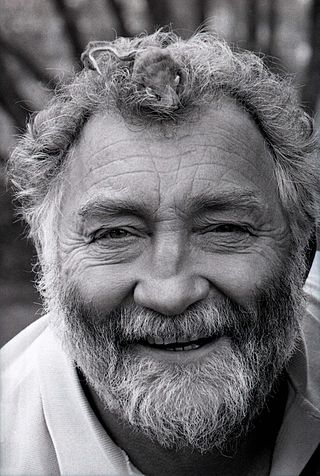The Islamic Foundation for Ecology and Environmental Science (IFEES) is an environmental organization founded in 1993 by Fazlun Khalid in Birmingham, England. The IFEES have produced a range of educational materials aimed at raising Muslims' awareness of environmental issues, and is involved in numerous conservation and education projects throughout the Muslim world, including "green audits" for mosques and a "Sustainable Living Islam summer camp. IFEES publishes a newsletter, EcoIslam, and has produced a film titled Clean Medina. [1] The Muslim Green Guide to Reducing Climate Change was published by IFEES in 2008. [2]
In 2005 IFEES worked with CARE International to bring a halt to dynamite fishing in Zanzibar, [3] and are currently conducting a tree-planting campaign in Indonesia called "Green Indonesia". [4]

Greenwashing, also called "green sheen", is a form of advertising or marketing spin in which green PR and green marketing are deceptively used to persuade the public that an organization's products, aims and policies are environmentally friendly. Companies that intentionally take up greenwashing communication strategies often do so in order to distance themselves from their own environmental lapses or those of their suppliers.

David James Bellamy was an English botanist, television presenter, author and environmental campaigner.
Spiritual ecology is an emerging field in religion, conservation, and academia that proposes that there is a spiritual facet to all issues related to conservation, environmentalism, and earth stewardship. Proponents of spiritual ecology assert a need for contemporary nature conservation work to include spiritual elements and for contemporary religion and spirituality to include awareness of and engagement in ecological issues.
The Green Belt Movement (GBM) is an indigenous grassroots organization in Kenya that empowers women through the planting of trees. It is one of the most effective and well-known grassroots organisations addressing the problem of global deforestation. Professor Wangari Maathai established the organization in 1977 under the auspices of the National Council of Women of Kenya (NCWK). GBM's successes in forest conservation, education, and women's economic empowerment have gained the organisation worldwide acclaim. It is also noted for its advocacy of human rights, democratisation of access to public lands, and environmental justice issues such as the role of women's traditional ecological knowledge in addressing environmental degradation and desertification.

Environmentalism or environmental rights is a broad philosophy, ideology, and social movement about life, habitats and surroundings. While environmentalism focuses more on the environmental and nature-related aspects of green ideology and politics, ecologism combines the ideology of social ecology and environmentalism. Ecologism is more commonly used in continental European languages, while environmentalism is more commonly used in English but the words have slightly different connotations.

Sadhguru is the founder and head of the Isha Foundation, based in Coimbatore, India. The foundation, established in 1992, operates an ashram and yoga centre that carries out educational and spiritual activities. Sadhguru has been teaching yoga since 1982. He is the author of the New York Times bestsellers Inner Engineering: A Yogi's Guide to Joy and Karma: A Yogi's Guide to Crafting Your Destiny, and a frequent speaker at international forums.

Religion and environmentalism is an emerging interdisciplinary subfield in the academic disciplines of religious studies, religious ethics, the sociology of religion, and theology amongst others, with environmentalism and ecological principles as a primary focus.
Christian views on environmentalism vary among different Christians and Christian denominations.

A green-collar worker is a worker who is employed in an environmental sector of the economy. Environmental green-collar workers satisfy the demand for green development. Generally, they implement environmentally conscious design, policy, and technology to improve conservation and sustainability. Formal environmental regulations as well as informal social expectations are pushing many firms to seek professionals with expertise with environmental, energy efficiency, and clean renewable energy issues. They often seek to make their output more sustainable, and thus more favorable to public opinion, governmental regulation, and the Earth's ecology.
Green jobs are, according to the United Nations Environment Program, "work in agricultural, manufacturing, research and development (R&D), administrative, and service activities that contribute(s) substantially to preserving or restoring environmental quality. Specifically, but not exclusively, this includes jobs that help to protect ecosystems and biodiversity; reduce energy, materials, and water consumption through high efficiency strategies; de-carbonize the economy; and minimize or altogether avoid generation of all forms of waste and pollution." The environmental sector has the dual benefit of mitigating environmental challenges as well as helping economic growth.
Judaism and environmentalism intersect on many levels. The natural world plays a central role in Jewish law, literature, liturgical, and other practices. Within the arena of Jewish thought, beliefs vary widely about the human relation to the environment.
İbrahim Özdemir is a Kurdish philosopher, academic and Islamic environmentalist. He is a professor of philosophy at Uskudar University and Director General of the Department of Foreign Affairs, the Ministry of National Education, Turkey.
Biocentrism, in a political and ecological sense, as well as literally, is an ethical point of view that extends inherent value to all living things. It is an understanding of how the earth works, particularly as it relates to its biosphere or biodiversity. It stands in contrast to anthropocentrism, which centers on the value of humans. The related ecocentrism extends inherent value to the whole of nature.
The Muslim Seven Year Action Plan on Climate Change is a climate action plan for the global Islamic community, meant to run from 2010 to 2017. It was developed by the British Earth Mates Dialogue Center and the Kuwait Ministry of Awqaf and Islamic Affairs. It is one of several multi-year climate action plans developed by major religious communities, developed in coordination with the Alliance of Religions and Conservation and the United Nations Development Programme.
Fazlun Khalid is a Sri Lankan born British Islamic ecotheologian and the Founder-Director of the Islamic Foundation for Ecology and Environmental Science based in Birmingham, England. He has served as director of training at the Alliance of Religions and Conservation and as a consultant for World Wildlife Fund.

Alan Marshall is a New Zealand author, scholar, and artist working within the discipline of environmental studies. He is noted as a key scholar in environmental philosophy and for his investigations into eco-friendly cities of the future. For his research on these topics, the University of Wollongong awarded Marshall a doctorate and National Geographic assigned him as an explorer.

Yonatan Neril is an interfaith environmental advocate, NGO director, and rabbi. He is the founder and current director of the Interfaith Center for Sustainable Development (ICSD), a non-profit organization based in Jerusalem.
The Islamic Declaration on Global Climate Change was a faith-based collective call of Islamic environmentalism to combat and tackle climate change addressed to Muslims all over the world. It was a result of a 2015 international symposium of representatives of academics, religious authorities, inter-governmental organisations, and civil society across a broad cross section of Muslim communities ahead of the Paris Climate Change Conference in 2015–2016.
Islamic environmentalism is a strand of environmental philosophy as well as an Islamic movement that employs environmental principles derived from Islamic scriptures and traditions to the environment and the modern-day environmental crisis. Muslim environmentalists believe in God's absolute sovereignty over nature and emphasize humanity's role as God's vicegerent, making it their duty to protect and preserve the environment. Islamic environmentalism encompasses Islamic ecological philosophy, Sharia-based environmental law, and Islamic environmental activism.